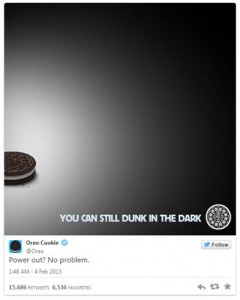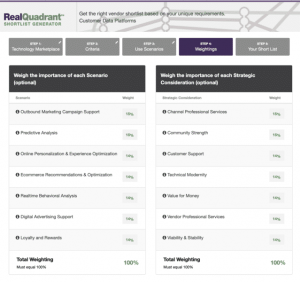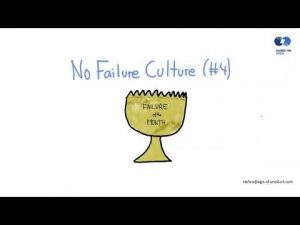If you need to wear glasses or contact lenses to drive, you suffer from myopia.
It’s also known as nearsightedness because your eyes are unable to easily focus on things that are far away while things that are right in front of you are perfectly clear.
That helps to explain the other meaning for the word myopia: lack of imagination, foresight, or intellectual insight. As in, “you’re suffering from content myopia.”
What is content myopia?
You know that effective marketing in today’s world requires the creation and distribution of content that’s going to effectively draw prospects to you via internet search and guide them through the buying cycle.
That’s been established for some time now and nearly all companies are working toward that goal to one extent or another.
This dangerous condition – content myopia – has nothing to do with failing to create enough content or failing to effectively distribute that content. In fact, a myopic content marketing strategy can look pretty good on paper: It can be consistent, timely, targeted, and so forth.
No, it’s more insidious and subtle than that.
Content myopia occurs when all the content you create and distribute is written for YOU and not for YOUR PROSPECTS.
Just like the physical eye condition of myopia (aka nearsightedness), you can easily see what’s right in front of your nose, but anything more than a few feet away starts getting blurry. More often than not, content myopia is caused by that second definition of the word – “lack of imagination, foresight, or intellectual insight” into what your prospects want and need to gain from your content.
What are the symptoms of content myopia?
A myopic content marketing strategy includes a lot of content that’s loaded down with complex industry jargon, or “techlish.” It’s written from the point of view of an insider who lives and breathes the ins and outs of the industry every day of their lives, and, as a result, it’s difficult for someone who’s not in that position to understand or even relate to.
It includes all manner of industry buzzwords, unexplained references to people, places, and things that only industry insiders would recognize instantly, and dry dissertations on detailed minutiae the average customer has no interest in or need to know.

Understandably, the industries most likely to suffer from it are those that would be considered “unglamorous” by most people – B2B, manufacturing, transportation, IT, and the like. Professionals in these industries are so steeped in the technical details of what they do, it becomes second nature to them to speak in the industry jargon, and to assume that everyone else understands what they’re talking about.
Is Your Manufacturing Company Generating Qualified Leads from Your Website?
Customers, however, may realize they want or need a product or service you’re offering, but have no knowledge of – or interest in – the kinds of technical details insiders like to discuss. In fact, getting bogged down in all those details can turn them off before they get a chance to start learning about what the company’s all about.
In many cases, the marketing teams working within these industries are just as bored with their subject matter as everyone who comes across their content, which is why the problem persists and gets worse over time.
How to overcome content myopia
Curing content myopia requires the same basic action as curing physical myopia:
You need to get a fresh perspective on things.
For your nearsighted eyes, a pair of glasses or contact lenses with the appropriate corrective prescription can allow you to easily focus on both near and far objects, giving you a safer and more enjoyable range of vision.
Similarly, a content marketing strategy designed to identify and accentuate the most exciting and attractive aspects of your company’s story can be just what the doctor ordered to cure content myopia.
An effective “prescription” content strategy will take into account what sorts of questions your target prospects are routinely asking about your products or services and what additional information they are likely to need as they progress from prospects to customers to advocates of your brand. Then, all of these questions and bits of information will be addressed in as engaging and entertaining a manner as possible to get the best, most productive, response from those target prospects.
And, just as you expect to get your eyes checked routinely to make sure the prescription you’re using is still accurate, an effective content strategy will be continually monitored and optimized as needed to maintain its effectiveness.
If, after reading this brief explanation of the condition, you think your company may be suffering from content myopia, we can discuss your treatment options and get you a content strategy you can be proud of.
Business & Finance Articles on Business 2 Community(67)






